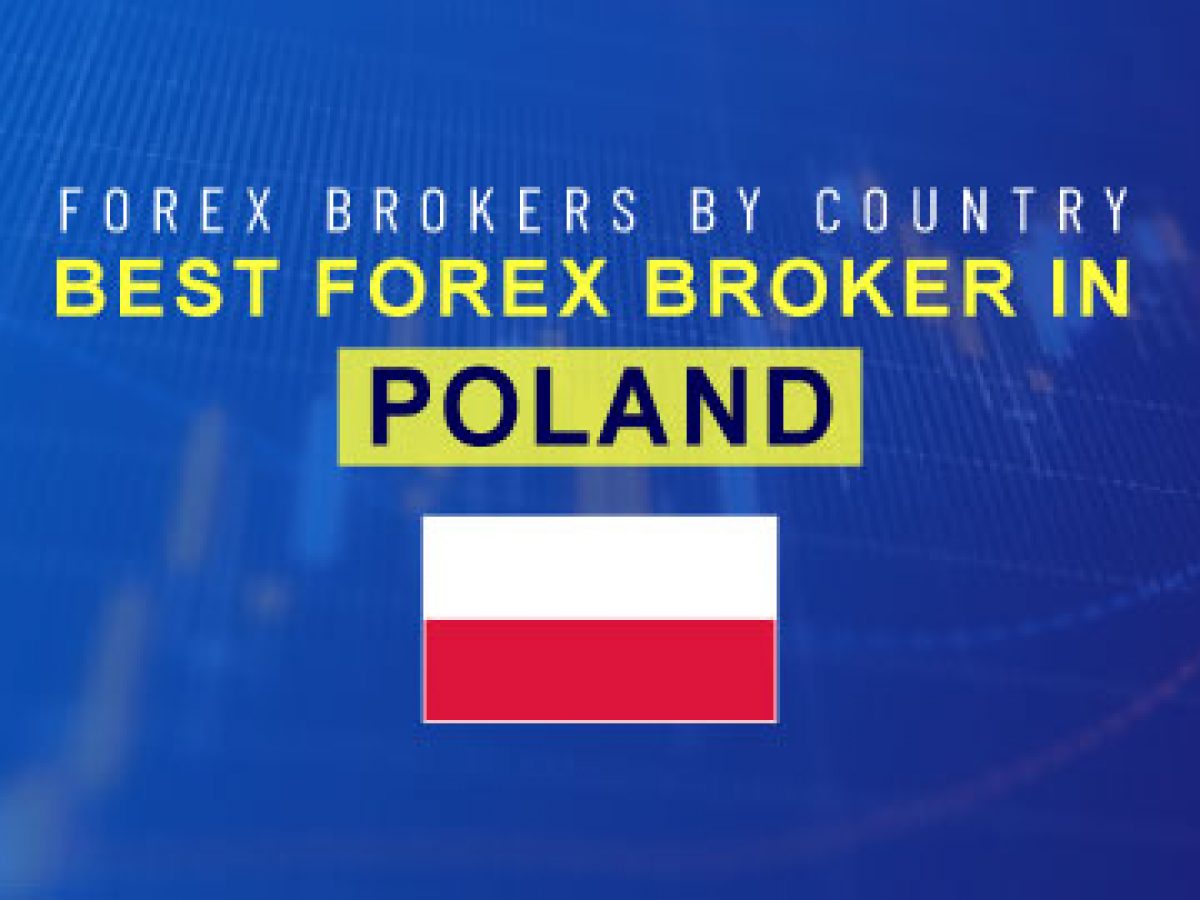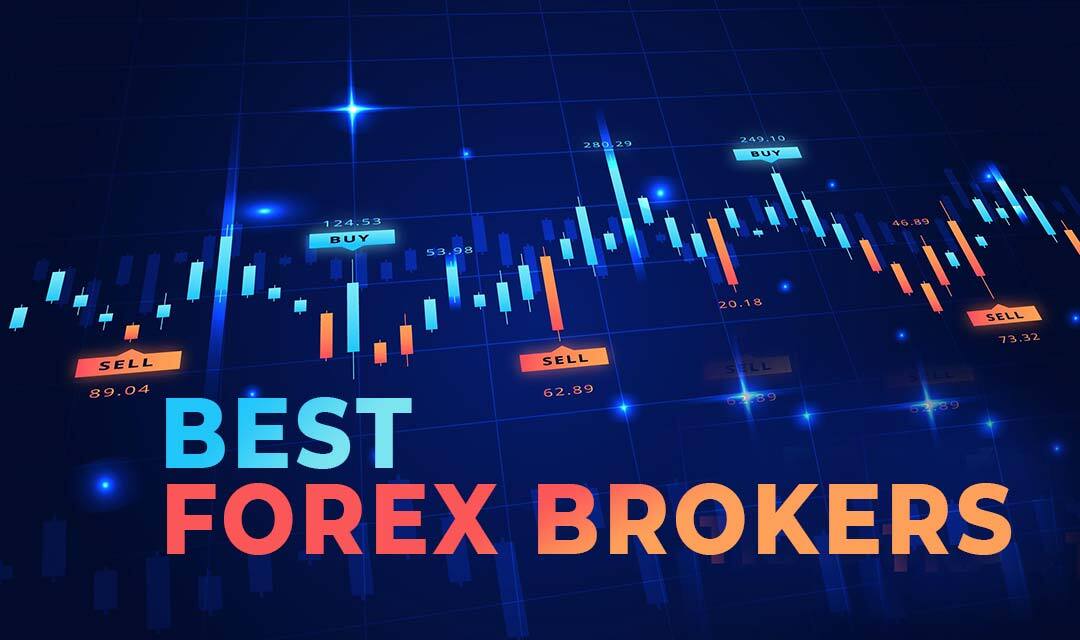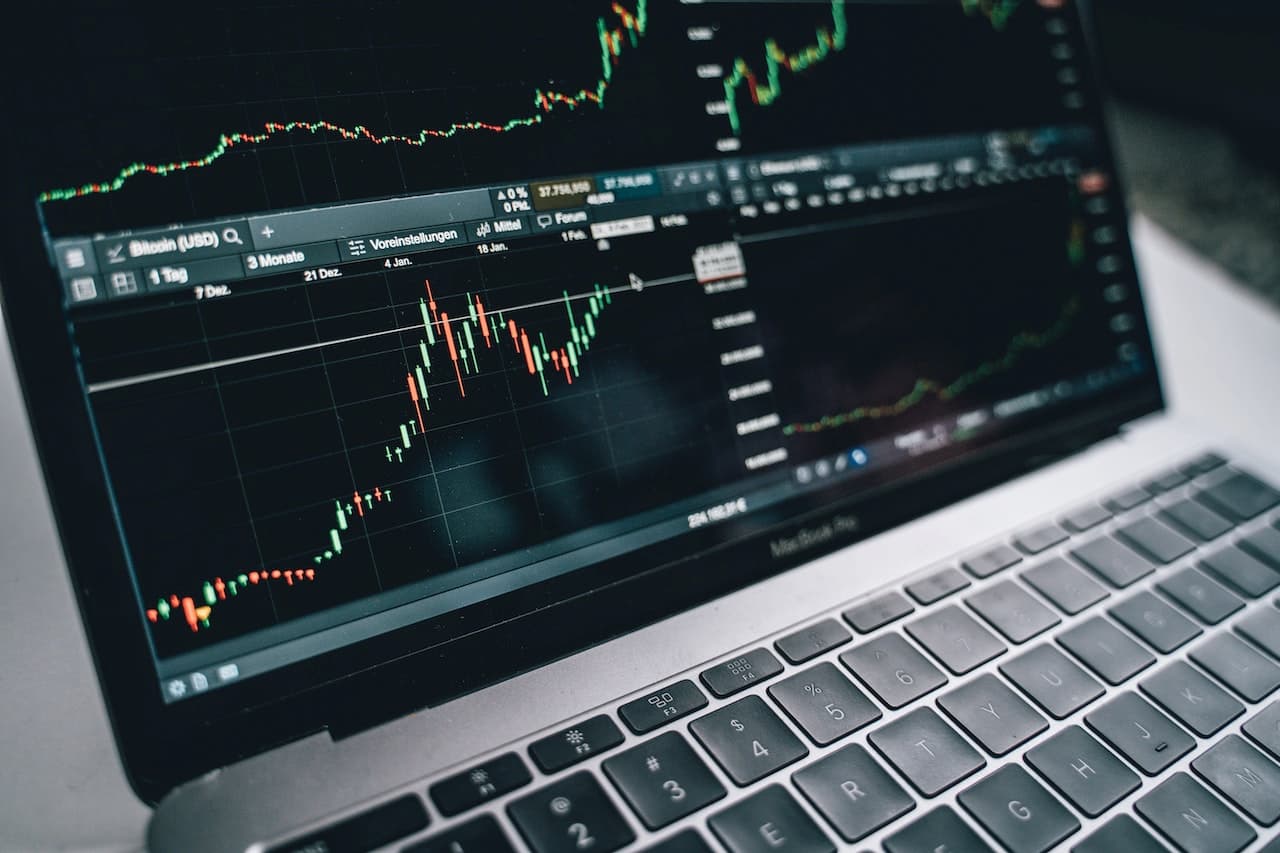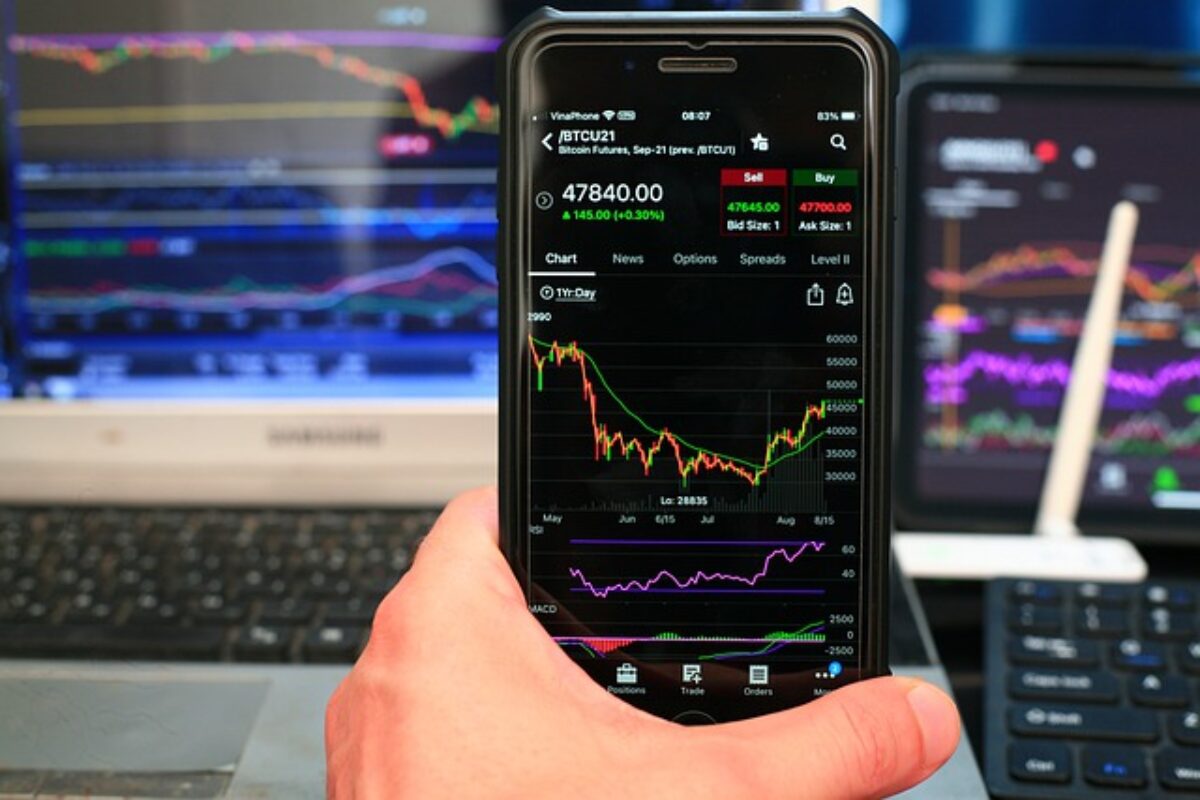Economy
Experts’ Research Has Identified the Best Forex Brokers in Poland in 2023

Forex trading is now a popular way for people worldwide, including in Poland, to make money from home by participating in global markets. Just like shopping for anything else, Polish traders need to find the right place, or in this case, the right broker, to do their trading. In this article, the team at Traders Union (TU) has helped you, by listing the best Forex brokers in Poland.
Forex trading in Poland: a quick guide by TU’s analysts
Engaging in Forex trading is entirely legit in Poland, with the nation’s primary regulatory body, the KNF (Komisja Nadzoru Finansowego), ensuring the market operates transparently and securely. For those in Poland contemplating an entry into the Forex world, here’s a more detailed overview:
1. Regulation
The KNF is responsible for monitoring and supervising all Forex trading activities within Poland’s borders. They enforce regulations and ensure market participants adhere to set standards.
2. Criteria for brokers
Only brokers with a license and authorization from the KNF can operate in Poland. This licensing ensures that they abide by set regulatory standards and practices.
3. EU mandates
The European Union has stringent guidelines in place to safeguard traders, such as prohibiting brokers from offering excessive bonuses and restricting the use of high leverage, thus ensuring a more controlled trading environment.
4. Safety measures
It’s essential to choose brokers vetted and approved by KNF, as this ensures a layer of protection for your investments. However, one must always keep in mind that, like all investments, trading in Forex carries inherent risks and it’s crucial to approach it with caution and knowledge.
Top Forex brokers in Poland
When you’re in Poland and want to dive into Forex trading, choosing the right broker is crucial. Traders Union experts have checked out some of the top brokers for you. Here’s a quick list:
- Tickmill – is great for scalpers, with super low fees.
- FxPro – offers a lot of markets and solid trading tools.
- IC Markets – is known for tight spreads and a big trading volume.
- MultiBank – offers a huge range of instruments but doesn’t support PLN pairs.
- XTB – is strong in Poland and offers local currency pairs.
- XM Group – good market coverage and well-regulated within the EU.
Quick tips to pick a Forex broker in Poland by TU’s experts
If you want to familiarize yourself with Forex trading in Poland, you need to start by looking for a suitable broker.
1. Regulation
Make sure your broker has a green light from top regulators like CySEC, FCA, or ASIC.
2. Commission fees
Check how much they charge. It’s a good idea to compare commission fees to find the most favorable offer.
3. Speed
A good broker processes orders quickly. No one likes delays.
4. Starting out
Look at their minimum deposit. Can you afford it?
5. Stability
Pick a broker that’s financially strong. It’s important to verify the safety of your money.
Starting in Forex? Best brokers for newbies in Poland
Hey newbie! Looking to kick-start your Forex journey in Poland? Here’s a quick guide from Traders Union team to help you pick the best broker:
- Low deposits – start small. Look for brokers like RoboForex and IC Markets that let you trade with a bit of cash.
- Practice accounts – dive in without risks. Demo or cent accounts are your best pals to practice.
- Learn from the pros – some brokers offer copy trading. You can mirror what seasoned traders are doing.
- Learn and grow – choose brokers that have awesome learning resources, like webinars and tutorials.
Conclusion
Starting Forex trading in Poland might feel a bit tricky. But with tips from TU and picking the right broker, you’re on a good track. Whether you’re experienced or new, it’s important to stay safe, learn, and find the best match for your needs. As the Forex scene changes, keep updating your knowledge. With the right help and continuous learning, there are many chances to do well in Poland’s Forex market. So, jump in, make wise choices, and happy trading!
Economy
Nigeria’s Economy Expands 4.07% in Q4 2025

By Adedapo Adesanya
Nigeria’s economy, measured by gross domestic product (GDP), grew by 4.07 per cent (year-on-year) in real terms in the fourth quarter (Q4) of 2025.
The National Bureau of Statistics (NBS) announced the development in its latest GDP report for Q4 2025 on Friday.
The latest figure represents an improvement over the 3.76 per cent growth recorded in the corresponding period of 2024, signalling sustained recovery across key sectors of the economy. The growth rate was faster than the third quarter’s 3.98 per cent.
The report confirmed that Nigeria’s oil sector grew 6.79 per cent year-on-year and the non-oil part of the economy expanded by 3.99 per cent.
Nigeria’s average daily oil production stood at 1.58 million barrels per day in the final three months of 2025. That was lower than the third quarter’s output of 1.64 million barrels per day but higher than the 1.54 million barrels per day in the fourth quarter of 2024.
Breakdown of the data showed that the agriculture sector grew by 4.00 per cent in the fourth quarter of 2025. This marks a significant increase compared to the 2.54 per cent growth recorded in the same quarter of 2024, reflecting improved output and resilience in the sector.
The industry sector also recorded a stronger performance during the period under review. It grew by 3.88 per cent year-on-year, up from 2.49 per cent posted in the fourth quarter of 2024. The improvement suggests enhanced activity in manufacturing, construction, and related industrial sub-sectors.
The services sector maintained its position as a major growth driver, expanding by 4.15 per cent in Q4 2025. However, this was slightly lower than the 4.75 per cent growth recorded in the corresponding quarter of the previous year.
Overall, the 4.07 per cent GDP growth in the final quarter of 2025 underscores broad-based expansion across agriculture, industry, and services, despite a marginal moderation in services growth.
The Q4 performance provides further evidence of strengthening economic momentum, with improvements recorded in both agriculture and industry compared to the previous year.
Economy
Flour Mills Supports 2026 Paris International Agricultural Show

By Modupe Gbadeyanka
For the second time, Flour Mills of Nigeria Plc is sponsoring the Paris International Agricultural Show (PIAS) as part of its strategies to fortify its ties with France.
The 2026 PIAS kicked off on February 21 and will end on March 1, with about 607,503 visitors, nearly 4,000 animals, and over 1,000 exhibitors in attendance last year, and this year’s programme has already shown signs of being bigger and better.
The theme for this year’s event is Generations Solution. It is to foster knowledge transfer from younger generations and structure processes through which knowledge can be harnessed to drive technological advancement within the global agricultural sector.
In his address on the inaugural day of the Nigerian Pavilion on February 23, the Managing Director for FMN Agro and Director of Strategic Engagement/Stakeholder Relations, Mr Sadiq Usman, said, “At FMN, our mission is Feeding and Enriching Lives Every Day.
“This is a mandate we have fulfilled through decades of economic shifts, rooted in a culture of deep resilience and constant innovation. We support this pavilion because FMN recognises that the next frontier of global Agribusiness lies in high-level technical exchange.
“We thank the France-Nigeria Business Council (FNBC), the organisers of the PIAS, and our fellow members of the Nigerian Pavilion – Dangote, BUA, Zenith, Access, and our partners at Creativo El Matador and Soilless Farm Lab— we are exceedingly pleased to work to showcase the true face of Nigerian commerce.”
Speaking on the invaluable nature of the relationship between Nigeria and France, and the FMN’s commitment to process and product innovation, Mr John G. Coumantaros, stated, “The France – Nigeria relationship is a valuable partnership built on a shared value agenda that fosters remarkable Intercontinental trade growth.
“Also, as an organisation with over six decades of transformational footprint in Nigeria and progressively across the African Continent, FMN has been unwaveringly committed to product and process innovation.
“Therefore, our continuous partnership with France for the success of the Paris International Agricultural Show further buttresses the thriving relationship between both countries.”
PIAS is one of the most widely attended agricultural shows, with thousands of people from across the world in attendance.
Economy
NEITI Backs Tinubu’s Executive Order 9 on Oil Revenue Remittances

By Adedapo Adesanya
Despite reservations from some quarters, the Nigeria Extractive Industries Transparency Initiative (NEITI) has praised President Bola Tinubu’s Executive Order 9, which mandates direct remittances of all government revenues from tax oil, profit oil, profit gas, and royalty oil under Production Sharing Contracts, profit sharing, and risk service contracts straight to the Federation Account.
Issued on February 13, 2026, the order aims to safeguard oil and gas revenues, curb wasteful spending, and eliminate leakages by requiring operators to pay all entitlements directly into the federation account.
NEITI executive secretary, Musa Sarkin Adar, called it “a bold step in ongoing fiscal reforms to improve financial transparency, strengthen accountability, and mobilise resources for citizens’ development,” noting that the directive aligns with Section 162 of Nigeria’s Constitution.
He noted that for 20 years, NEITI has pushed for all government revenues to flow into the Federation Account transparently, calling the move a win.
For instance, in its 2017 report titled Unremitted Funds, Economic Recovery and Oil Sector Reform, NEITI revealed that over $20 billion in due remittances had not reached the government, fueling fiscal woes and prompting high-level reforms.
Mr Adar described the order as a key milestone in Nigeria’s EITI implementation and urged amendments to align it with these reforms.
He affirmed NEITI’s role in the Petroleum Industry Act (PIA) and pledged close collaboration with stakeholders, anti-corruption bodies, and partners to sustain transparent management of Nigeria’s mineral resources.
Meanwhile, others like the Petroleum and Natural Gas Senior Staff Association of Nigeria (PENGASSAN) have kicked against the order, saying it poses a serious threat to the stability of the oil and gas industry, calling it a “direct attack” on the PIA.
Speaking at the union’s National Executive Council (NEC) meeting in Abuja on Tuesday, PENGASSAN President, Mr Festus Osifo, said provisions of the order, particularly the directive to remit 30 per cent of profit oil from Production Sharing Contracts (PSCs) directly to the Federation Account, could destabilise operations at the Nigerian National Petroleum Company (NNPC) Limited.
Mr Osifo firmly dispelled rumours of imminent protests by the union, despite widespread claims that the controversial executive order threatens the livelihoods of 10,000 senior staff workers at NNPC.
He noted, however, that the union had begun engagements with government officials, including the Presidential Implementation Committee, and expressed optimism that common ground would be reached.
Mr Osifo, who also serves as President of the Trade Union Congress (TUC), expressed concerns that diverting the 30 per cent profit oil allocation to the Federation Account Allocation Committee (FAAC), without clearly defining how the statutory management fee would be refunded to NNPC, could affect the salaries of hundreds of PENGASSAN members.
-

 Feature/OPED6 years ago
Feature/OPED6 years agoDavos was Different this year
-
Travel/Tourism10 years ago
Lagos Seals Western Lodge Hotel In Ikorodu
-

 Showbiz3 years ago
Showbiz3 years agoEstranged Lover Releases Videos of Empress Njamah Bathing
-

 Banking8 years ago
Banking8 years agoSort Codes of GTBank Branches in Nigeria
-

 Economy3 years ago
Economy3 years agoSubsidy Removal: CNG at N130 Per Litre Cheaper Than Petrol—IPMAN
-

 Banking3 years ago
Banking3 years agoSort Codes of UBA Branches in Nigeria
-

 Banking3 years ago
Banking3 years agoFirst Bank Announces Planned Downtime
-

 Sports3 years ago
Sports3 years agoHighest Paid Nigerian Footballer – How Much Do Nigerian Footballers Earn



















